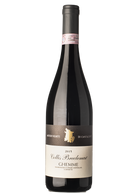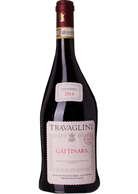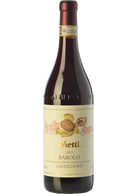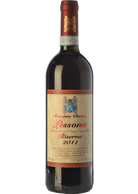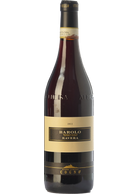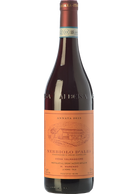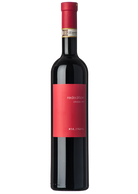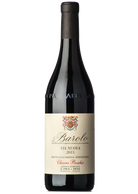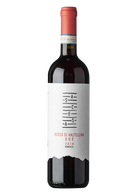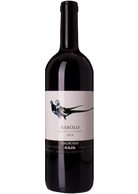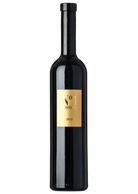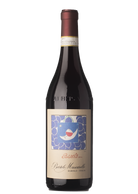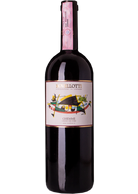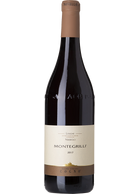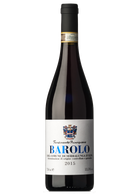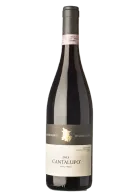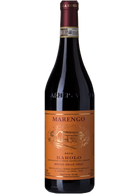Nebbiolo
For an Italian wine lover, especially if from the north, Nebbiolo is not just a grape. Rather, it is a set of memories, emotions, impressions that recall moments of conviviality, dining tables, landscapes, encounters. As the grape is anything but simple to cultivate, and, once made into wine, even more difficult to drink especially when it’s young, Nebbiolo is a splendid metaphor not only of the rural civilisation that protected it over the centuries, but more generally of the character and personality of northern Italians.
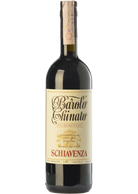

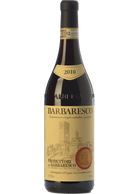

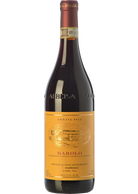
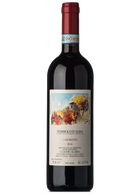
Nebbiolo
For an Italian wine lover, especially if from the north, Nebbiolo is not just a grape. Rather, it is a set of memories, emotions, impressions that recall moments of conviviality, dining tables, landscapes, encounters. As the grape is anything but simple to cultivate, and, once made into wine, even more difficult to drink especially when it’s young, Nebbiolo is a splendid metaphor not only of the rural civilisation that protected it over the centuries, but more generally of the character and personality of northern Italians.
Grapes grown in the fog - hence, probably, the name - Nebbiolo found its home first in Valtellina, upper Lombardy, then among the splendid woods of northern Piedmont, towards Gattinara, and finally in the Langhe. Rustic and mountainy in Valtellina, thin and mineral in upper Piedmont, in Langa, Nebbiolo explodes to its peak of complexity, richness and longevity. Of course, due to the World Heritage Site terroir, which needs no introduction. But also, even in areas where the exposure is sunny and the soil naturally suited to large reds, its stubborn conservation of that softness of structure and incisiveness of tannins which constitute at the same time rusticity and nobility. The moody but infinitely multifaceted character of a heritage destined for aging like few other wines in the world.
Certified in the Langhe area since the fifteenth century, Nebbiolo is above all a great wine even when young. Nervous? Yes, but for this reason it is exceptional. Fruity, agile, dynamic, with exuberant freshness and indomitable tannins. This is the character of the Langhe Nebbiolo: a dynamic and easy-to-drink type, even when a touch of wood blunts its youthful excesses. But now, take the same Nebbiolo, take it from the best vineyards, leave it in large barrels for two, three, four years... and you will get the pride of the Langhe: the regal, clear, sumptuous Barolo, the subtle, rugged, emotional Barbaresco. Such long-lived wines to leave in the cellar for a continuous, moving goodbye.
Only in Langhe? Not at all! Nebbiolo reigns throughout lower Piedmont, expressing itself with greater versatility and multi-facetednes in Roero, north of the Tanaro river and Alba, and in Monferrato, with pop and snappy versions, but also interesting reserves. Great, according to some, even more so than in Langa, in upper Piedmont, where it is now, though often blended with vespolina and rare grapes, the noblest grape of Gattinara, Ghemme, Boca, Bramaterra and Lessona, volcanic, porphyry and deep-sea marly areas that produce a glass of subtlety and amazing mineral elegance, no less long-lived than the Langaroli. Even more so in the mountains, Nebbiolo surprises in Carema, among very steep slopes, and Donnas, in Valle d'Aosta, even more clear and graceful thanks to its considerable altitudes.
Outside of Piedmont, there is Nebbiolo especially in Valtellina, from which it seems the grapes are derived. A Nebbiolo, here, which is more rustic, genuine, territorial, also tense and mountainy, and also of great longevity, especially after long years of aging in large barrels. Among the myths of Sassella, Grumello and Inferno, a dry version is also produced from dried grapes, called Sforzato.

